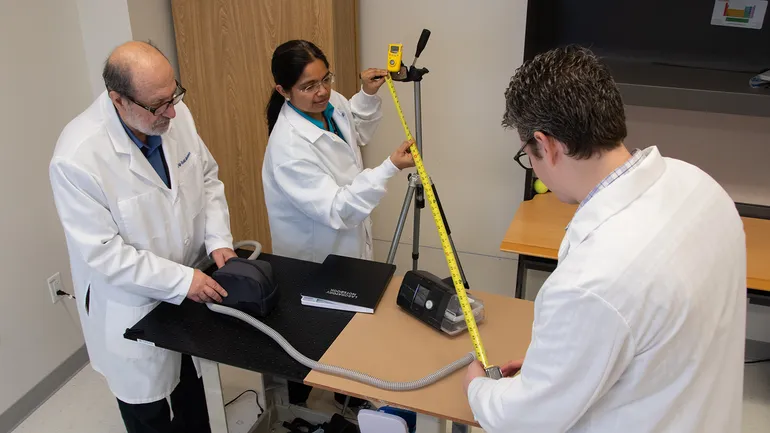The Food and Drug Administration sent warning letters to four companies for selling devices that claim to clean continuous positive airway pressure (CPAP) machines but lack agency clearance or approval.
Currently, the FDA has not authorized any devices to clean or disinfect CPAP machines. However, companies sell devices they claim use ozone gas or ultraviolet light to clean, sanitize or disinfect machines. The FDA previously warned that ozone can worsen chronic respiratory disease, and that to be effective in killing harmful bacteria, the gas must be present at a higher concentration than is safe for humans. Meanwhile, UV light-based products can pose a risk of burns or eye damage.
On Aug. 7, the FDA sent warning letters to Leel Tech, Natures Pillows and Top Dog Direct, and Adventure Innovations. It sent another letter to Shenzhen Moyeah Intelligent Life Technology a day later. The FDA posted all four letters online on Aug. 28.
Leel sells devices that claim to sanitize and disinfect CPAP machines using ozone, but the FDA has never authorized the devices. The agency contacted Leel in 2023 before sending the warning letter, saying its products appear to meet the definition of a medical device. In response, Leel said the company “is an agent for CPAP cleaner machines,” does not directly manufacture the devices, and plans to sell its remaining inventory.
In 2021, the FDA also contacted Natures Pillow ahead of sending a warning letter, citing similar concerns. Natures Pillow said its ozone cleaners should be exempt from premarket notification requirements as a Class I device — the FDA disagrees.
Adventure Innovations, which claims to use ultrasonic waves to clean CPAP machines, also tried to push back on an FDA outreach letter in 2022 that found its equipment should be regulated as a medical device.
The FDA contacted Shenzhen Moyeah in 2021 and 2023, saying its ozone cleaners meet the definition of a medical device. The company never responded.
After its initial outreach to the companies, the FDA ultimately issued warning letters last month. In all four, the agency asked the companies to “cease any activities that result in misbranding or adulteration” of their devices, including commercial distribution of the unapproved products.
Philips recall adds to ozone scrutiny
Companies that claimed their equipment could clean CPAP machines came under scrutiny after Philips began its recall of more than 15 million respiratory devices in 2021, blaming the use of ozone cleaners for a problem with soundproofing foam breaking down in its CPAP machines and users potentially inhaling particles.
Philips is still in the process of resolving the recall, including repairing or replacing affected devices. The company reached two large civil settlements earlier this year and struck a consent decree with the Department of Justice, agreeing to stop selling most of its respiratory machines in the U.S.
The FDA said in the recall that exposure to hot and humid conditions can cause the foam used in Philips’ devices to break down, and that using ozone cleaners may worsen the problem.
SoClean, another company that makes CPAP cleaning machines, initially sued Philips in 2021, alleging that the company blamed SoClean to divert attention from “obvious design flaws, including a poor choice of sound abatement foam.”
However, the company recalled its SoClean 2 and SoClean 3 devices last year to add a hose and mask adapter to prevent ozone from entering the CPAP machine. At the time, the FDA warned that it had not authorized any CPAP cleaning machines.
Earlier this year, Philips filed a countersuit against SoClean, alleging that the company sold ozone cleaners that it marketed as compatible with Philips’ CPAP and BiPAP machines without FDA approval or clearance. Philips thinks SoClean should help pay for the $1.1 billion personal injury settlement it reached in April with people who said they were harmed by using Philips’ respiratory devices.
In August, the FDA cleared the SoClean 3+ device to reduce bacteria on certain CPAP masks and hoses after cleaning. The agency still emphasized that outside machines are not needed to clean a CPAP and do not replace the manufacturer’s cleaning process, and that most accessories can be cleaned with soap and water.

